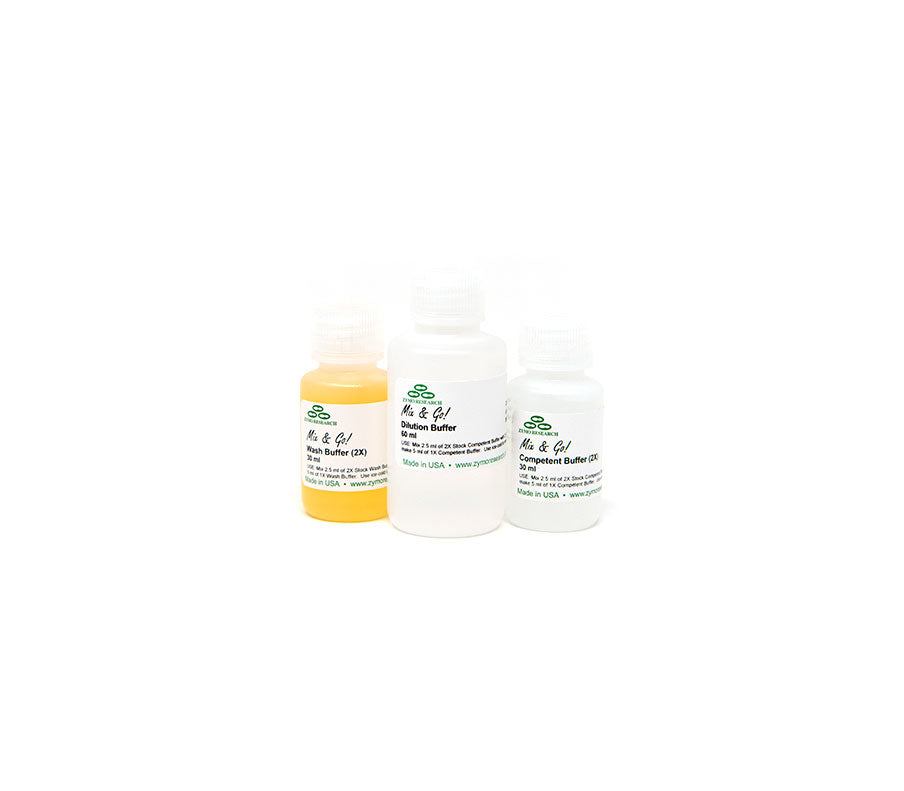- Home
- Zymo Research Kits
- Zymo Mix & Go! E.coli Transformation Kit and Buffer Set
Zymo Mix & Go! E.coli Transformation Kit and Buffer Set

- Details
- Send to friend
- Customer feedback
- Easy 3 Step Protocol: Produce reliable chemically competent E. coli in less than 45 minutes.
- Simple 20 sec Transformation: No heat shock! Just add DNA and spread.
- High Transformation Efficiencies: Achieve 108-109 transformants per µg of plasmid DNA.
The Mix & Go! E. coli Transformation Kit and Mix & Go! E. coliTransformation Buffer Set are convenient methods for the preparation of competent E. coli cells for simple and highly efficient DNA transformation. The Mix & Go! method completely eliminates the requirement for heat shocking and related procedures. Instead, Mix & Go! bacterial transformation can be performed by adding DNA to Mix & Go! competent cells and spreading onto a plate. Transformation efficiencies are typically on the order of 108-109 transformants/µg plasmid DNA with most E. colistrains. Uniquely formulated reagents make it easy to generate Mix & Go! competent cells from current E. colistrains that are available in the laboratory. Simply grow the E. coli strain of your choice, wash, then resuspend the cells in the provided buffers. The cells are now transformation ready! The Mix & Go! E. coli Transformation Kit includes all buffers and ZymoBroth medium to generate 20 ml of Mix & Go!competent cells. The Mix & Go! E. coli Transformation Buffer Set includes all buffers that are required to generate 60 ml of Mix & Go! competent cells, and the medium (broth) is supplied by the user.
| Compatible Strains | The Kit is optimized to work with K12 and B derivative strains. Some commonly used strains include, TOP10, ccdB survival, XL1 Blue and Stbl3. |
|---|---|
| Processing Time | ≤ 45 minutes |
| Product Storage | Please store the Wash Buffer (2X), Competent Buffer (2X), and Dilution Buffer at 0-8°C. The ZymoBroth can be stored at room temperature. |
| Transformation Efficiency | 108-109 transformants per µg of plasmid DNA for most common lab strains. |
| Supplemental Info |


